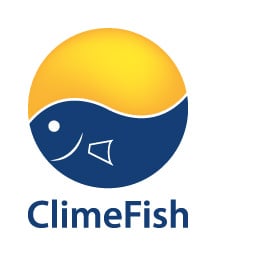FEAP
 In ClimeFish, FEAP will facilitate stakeholder debates and dissemination activities within its European arenas.
In ClimeFish, FEAP will facilitate stakeholder debates and dissemination activities within its European arenas.
History
The Federation of European Aquaculture Producers (FEAP) was created in 1968 as a Federation of National Associations that represented European trout farming. Its initial goals were to address issues affecting the development of this sector – including markets, technical and legislative issues – which followed the creation of the European Economic Community (EEC). By the late 1970s, its membership had expanded to include salmon farming interests – from Norway and UK. As fish farming developed further, its scope increased to include new National associations covering seabass and seabream farming in the Mediterranean and freshwater production, principally carp species, in Central Europe. The broadening of the Federation’s scope led to its appointment to the Advisory Committee on Fisheries and Aquaculture of the European Commission that was created in 1998, allowing professional interests to participate in consultation and advisory actions on aquaculture development in Europe.
At the same time, the FEAP initiated and participated in several European projects, reflecting its commitment to improving scientific knowledge for the benefit of farmers. This approach was reflected by raising communication actions within the profession and starting dissemination activities, channelled through the FEAP Associations. This policy enabled many European research projects to present their results directly to aquaculture professionals, radically improving both the implementation of new processes or products and the transfer of knowledge.
Since that time, the FEAP, its Member Associations and individual companies have been increasingly active in European and national research projects or support actions, looking to raise the impact of research and achieving sustainability in all areas of European fish farming.
Aquaculture and climate changes
When ClimeFish was being developed as a proposal, FEAP Associations were reporting climate-related issues affecting the sector. These ranged from
-drought and extreme temperatures affecting freshwater farming in central Europe
-productivity changes observed in marine aquaculture sites, both in the North (salmon) and the South (seabass and seabream)
-alterations in susceptibility of fish to diseases and infections, specifically where extreme conditions were being experienced in both summer and winter
-increased reports of storms causing damage to marine installations and flooding of land-based farms
While many of these reports could be seen as being subjective, the reported effects on farm performance could not be ignored. On the other hand, the profession recognised that it has to position itself to be able to react to the effects of climate change and have access to adaptive strategies that will reinforce its long term sustainability.
FEAP in ClimeFish
The development of appropriate Decision Support Framework tools, built upon real in-field experience and scenarios forecast for the future, will enable the individual farmers to plan and respond correctly to the effects of climate change, taking advantage of opportunities while reducing operational risks. Many individual farmers will be providing inputs into the stakeholder debates and scenarios during the course of the project, facilitated by the National Associations of the FEAP.
ClimeFish scientists will be regularly invited to present the project’s progress and results to the FEAP and its Member Associations while the FEAP will also facilitate the dissemination actions foreseen within the European arena where it is active – notably through the new Aquaculture Advisory Council and other European consultative groups.
FEAP is involved in a number of projects, you can read more about these projects, including ClimeFish, here.
